Discover Dementia Researcher Blogs
Dementia Researcher Blogs

Dementia Researcher Blogs
Author: Dementia Researcher
Subscribed: 14Played: 241Subscribe
Share
© Copyright 2023 All rights reserved.
Description
The Dementia Researcher Blogs Podcasts - through this show, you can hear our bloggers read their blogs. So if you prefer to read, you can head or our website or you can listen on the move. These shows are about academic / research careers, research, science and life as an early career dementia researchers. Brought to you by https://www.dementiaresearcher.nihr.ac.uk - everything you need, all in one place.
Remember to subscribe to our main ‘Dementia Researcher‘ Podcast, here and where ever you get your podcasts.
Remember to subscribe to our main ‘Dementia Researcher‘ Podcast, here and where ever you get your podcasts.
644 Episodes
Reverse
Gemma Lace, narrates her blog written for the Dementia Researcher website.
Gemma joins our lineup of regular bloggers, and in this first post Gemma explores the moments that shaped her journey from a first in family student to Associate Dean and dementia researcher. She describes the triggers that guided her choices, from a desire to help others to a commitment to equity, inspiration, mentoring and finding her own path. Through personal stories and reflections on work, family and purpose, she encourages early career researchers to notice what brings them energy and joy and to use those clues to shape a future that feels meaningful.
Find the original text, and narration here on our website.
https://www.dementiaresearcher.nihr.ac.uk/blog-pursuing-your-passion-finding-purpose-in-chaos/
--
Dr Gemma Lace is Associate Dean Academic for Student Experience and leads the Molecular Biology Dementia Group at the University of Salford, where she investigates abnormal protein accumulation and small extracellular vesicles in neurodegenerative disease. Funded by Alzheimer’s Research UK and the Alzheimer’s Society, she combines research with supporting future scientists, drawing on a career that spans a Neuroscience degree, a PhD in Genomic Medicine and work across major neurodegenerative conditions. Motivated by family experience, she is dedicated to improving understanding of dementia, and outside work she is a life coach, martial artist and mother of three.
--
Enjoy listening? We're always looking for new bloggers, drop us a line. http://www.dementiaresearcher.nihr.ac.uk
This podcast is brought to you in association with Alzheimer's Association, Alzheimer's Research UK, Alzheimer's Society and Race Against Dementia, who we thank for their ongoing support.
--
Follow us on Social Media:
https://www.instagram.com/dementia_researcher/
https://www.facebook.com/Dementia.Researcher/
https://twitter.com/demrescommunity
https://www.linkedin.com/company/dementia-researcher
https://bsky.app/profile/dementiaresearcher.bsky.social
Join our community:
https://onelink.to/dementiaresearcher
Rebecca Williams, narrates her blog written for the Dementia Researcher website.
In this blog, Rebecca Williams reflects on the final stretch toward submitting her PhD thesis and offers a candid account of the pressure, doubt and exhaustion that shape the closing weeks. She shares how expectations about perfection created unnecessary obstacles, how imposter feelings surfaced at the moment she most hoped for clarity, and how the support of others proved essential when her own energy ran low. Her story highlights the value of community, perspective and acceptance during an emotionally intense period that many researchers will recognise.
Find the original text, and narration here on our website.
https://www.dementiaresearcher.nihr.ac.uk/blog-the-rocky-road-to-phd-submission/
--
Rebecca Williams is PhD student at the University of Cambridge. Though originally from ‘up North’ in a small town called Leigh, she did her undergraduate and masters at the University of Oxford before defecting to Cambridge for her doctorate researching Frontotemporal dementia and Apathy. She now spends her days collecting data from wonderful volunteers, and coding. Outside work, she plays board games, and is very crafty. @beccasue99
--
Enjoy listening? We're always looking for new bloggers, drop us a line. http://www.dementiaresearcher.nihr.ac.uk
This podcast is brought to you in association with Alzheimer's Association, Alzheimer's Research UK, Alzheimer's Society and Race Against Dementia, who we thank for their ongoing support.
--
Follow us on Social Media:
https://www.instagram.com/dementia_researcher/
https://www.facebook.com/Dementia.Researcher/
https://twitter.com/demrescommunity
https://www.linkedin.com/company/dementia-researcher
https://bsky.app/profile/dementiaresearcher.bsky.social
Join our community:
https://onelink.to/dementiaresearcher
Dr Becky Carlyle, narrates her blog written for the Dementia Researcher website.
In this blog Becky reflects on what recent work in molecular neurodegeneration reveals about progress in dementia research. Drawing on developments in early diagnosis, cerebrospinal fluid staging, high throughput proteomics and large scale single cell data, she explains why the past five years have transformed what we can measure and understand. These advances give researchers new ways to define disease stages, identify meaningful sub groups and uncover cell specific vulnerabilities. She describes why this creates genuine momentum for targeted treatments and why the tools needed to match medicines to the right people at the right time are now within reach.
Find the original text, and narration here on our website.
https://www.dementiaresearcher.nihr.ac.uk/blog-a-scientific-christmas-message-of-hope/
--
Dr Becky Carlyle is an Alzheimer's Research UK Senior Research Fellow at University of Oxford, and has previously worked in the USA. Becky writes about her experiences of starting up a research lab and progressing into a more senior research role. Becky's research uses mass-spectrometry to quantify thousands of proteins in the brains and biofluids of people with dementia. Her lab is working on various projects, including work to compare brain tissue from people with dementia from Alzheimer’s Disease, to tissue from people who have similar levels of Alzheimer’s Disease pathology but no memory problems. Becky is also a mum, she runs, drinks herbal tea's and reads lots of books. Find Becky on LinkedIn
--
Enjoy listening? We're always looking for new bloggers, drop us a line. http://www.dementiaresearcher.nihr.ac.uk
This podcast is brought to you in association with Alzheimer's Association, Alzheimer's Research UK, Alzheimer's Society and Race Against Dementia, who we thank for their ongoing support.
--
Follow us on Social Media:
https://www.instagram.com/dementia_researcher/
https://www.facebook.com/Dementia.Researcher/
https://twitter.com/demrescommunity
https://www.linkedin.com/company/dementia-researcher
https://bsky.app/profile/dementiaresearcher.bsky.social
Join our community:
https://onelink.to/dementiaresearcher
Dr Emma Law, narrating her blog written for the Dementia Researcher website.
Emma reflects on a presentation at the European Alzheimer Disease Consortium that described a fully automated conversational agent to deliver the Cognitive Dementia Rating Scale in clinical trials. She explains how the CDR works, the domains it assesses, and the way scores are used to stage dementia. Emma then weighs the potential benefits of an automated AI version, such as standardisation and reduced subjectivity, against serious concerns about the loss of clinical skill, empathy, and responsiveness to emotion, especially when interviews are distressing for caregivers. She remains undecided, inviting readers to consider whether this future represents progress or a step towards a colder, more distant model of dementia care.
Find the original text, and narration here on our website.
https://www.dementiaresearcher.nihr.ac.uk/blog-the-cognitive-dementia-rating-cdr-scale-the-future-is-coming/
#DementiaResearch #ClinicalTrials #Research #TrialDelivery
--
Dr Emma Law is Strategic Manager for the The Neuroprogressive and Dementia Network in Scotland. Emma has 13 years experience as a Clinical Trails Network Manager and over 35 years experience as a Nurse, many of which were spent in the delivery of Clinical Research Trials. Emma completed her PhD and is passionate about giving people living with dementia and their carers access to participate in research.
--
Enjoy listening? We're always looking for new bloggers, drop us a line. http://www.dementiaresearcher.nihr.ac.uk
This podcast is brought to you in association with Alzheimer's Association, Alzheimer's Research UK, Alzheimer's Society and Race Against Dementia, who we thank for their ongoing support.
--
Follow us on Social Media:
https://www.instagram.com/dementia_researcher/
https://www.facebook.com/Dementia.Researcher/
https://twitter.com/demrescommunity
https://www.linkedin.com/company/dementia-researcher
https://bsky.app/profile/dementiaresearcher.bsky.social
Join our community:
https://onelink.to/dementiaresearcher
Dr Peter Connelly narrates his blog written for Dementia Researcher.
Cognitive tests are central to dementia assessment, but Peter argues we rely on them far more than we should. He traces the history from early intellectual testing through tools such as CAPE and MMSE to modern complex batteries and laboratory measures supported by artificial intelligence. Across clinic and research, he highlights how scores can be misleading when training is poor, scoring is inconsistent, or guessing alters results, especially when small changes are treated as evidence that treatments work or fail. Throughout, he stresses that cognitive scores often relate poorly to what really matters for people with dementia which is how well they manage everyday tasks such as shopping, finances, driving, medication, and meal preparation.
Find the original text, and narration here on our website.
https://www.dementiaresearcher.nihr.ac.uk/blog-cognitive-testing/
--
Dr Peter Connelly is a retired Old Age Psychiatrist who spent much of his career in Tayside, helping to establish clinical trials for dementia and neuroprogressive disorders in Scotland. Now working with the Scottish Neuroprogressive and Dementia Network, he combines professional insight with personal experience as a former carer. In retirement, he enjoys music, golf, and time with his grandchildren.
--
Enjoy listening? We're always looking for new bloggers, drop us a line. http://www.dementiaresearcher.nihr.ac.uk
This podcast is brought to you in association with Alzheimer's Association, Alzheimer's Research UK, Alzheimer's Society and Race Against Dementia, who we thank for their ongoing support.
--
Follow us on Social Media:
https://www.instagram.com/dementia_researcher/
https://www.facebook.com/Dementia.Researcher/
https://twitter.com/demrescommunity
https://www.linkedin.com/company/dementia-researcher
https://bsky.app/profile/dementiaresearcher.bsky.social
Join our community:
https://onelink.to/dementiaresearcher
Adam Smith narrates his blog written for Dementia Researcher.
In this blog Adam offers clear guidance for people seeking their first research assistant role. It explains how building a visible online presence, following authors whose work you admire, reaching out for short conversations, and engaging with communities can help you stand out. It also covers job alerts, broadening the types of roles you consider, attending webinars and conferences, volunteering for small tasks, and preparing strong applications by matching the person specification.
Find the original text, and narration here on our website.
https://communities.dementiaresearcher.nihr.ac.uk/c/undergradudate/if-you-just-left-university-you-probably-got-some-336de1da-5d76-48f5-8027-0408ad5bb8a6
--
Adam Smith was born in the north, a long time ago. He wanted to write books, but ended up working in the NHS, and at the Department of Health. He is now Programme Director in the Office of the NIHR National Director for Dementia Research (which probably sounds more important than it is) at University College London. He has led a number of initiatives to improve dementia research (including this website, Join Dementia Research & ENRICH), as well as pursuing his own research interests. In his spare time, he grows vegetables, builds Lego & spends most of his time drinking too much coffee and squeezing technology into his house.
--
Enjoy listening? We're always looking for new bloggers, drop us a line. http://www.dementiaresearcher.nihr.ac.uk
This podcast is brought to you in association with Alzheimer's Association, Alzheimer's Research UK, Alzheimer's Society and Race Against Dementia, who we thank for their ongoing support.
--
Follow us on Social Media:
https://www.instagram.com/dementia_researcher/
https://www.facebook.com/Dementia.Researcher/
https://twitter.com/demrescommunity
https://www.linkedin.com/company/dementia-researcher
https://bsky.app/profile/dementiaresearcher.bsky.social
Join our community:
https://onelink.to/dementiaresearcher
Dr Yvonne Couch, narrates her blog written for the Dementia Researcher website.
In this blog, Yvonne examines how competition influences scientific work, using research on tenure, prestige, field evolution, and the pressures created by short funding cycles. She outlines how incentives in academia shape behaviour at every career stage and explains how systems geared toward rapid output and visible productivity can reshape what counts as valuable or creative work.
Find the original text, and narration here on our website.
https://www.dementiaresearcher.nihr.ac.uk/blog-competition-in-science/
--
Dr Yvonne Couch is a Research Fellow and Associate Professor at the University of Oxford. Yvonne studies the role of extracellular vesicles and their role in changing the function of the vasculature after stroke, aiming to discover why the prevalence of dementia after stroke is three times higher than the average. It is her passion for problem solving and love of science that drives her, in advancing our knowledge of disease. Yvonne writes about her work, academic life, and careers as she takes a new road into independent research.
--
Enjoy listening? We're always looking for new bloggers, drop us a line. http://www.dementiaresearcher.nihr.ac.uk
This podcast is brought to you in association with Alzheimer's Association, Alzheimer's Research UK, Alzheimer's Society and Race Against Dementia, who we thank for their ongoing support.
--
Follow us on Social Media:
https://www.instagram.com/dementia_researcher/
https://www.facebook.com/Dementia.Researcher/
https://twitter.com/demrescommunity
https://www.linkedin.com/company/dementia-researcher
https://bsky.app/profile/dementiaresearcher.bsky.social
Join our community:
https://onelink.to/dementiaresearcher
Dr Jodi Watt, narrating a new blog they wrote for the Dementia Researcher website.
In Jodi's final post for Dementia Researcher, they share reflections on moving to a new role after years of writing about the realities of academic life. Jodi looks back on the value of open conversations about uncertainty and community, and offers words of encouragement to others navigating job precarity. With honesty and warmth, Jodi closes this chapter while celebrating the generosity and shared humanity that make research worth doing.
Find the original text, and narration here on our website.
https://www.dementiaresearcher.nihr.ac.uk/blog-this-is-not-a-goodbye-post-except-it-is-sort-of/
--
Dr Jodi Watt is a Postdoctoral Researcher at University of Glasgow. Jodi's academic interests are in both healthy ageing and neurodegenerative diseases of older age, and they are currently working on drug repurposing for dementia. Previously they worked on understanding structural, metabolic and physiological brain changes with age, as measured using magnetic resonance imaging. As a queer and neurodiverse person, Jodi is also incredibly interested in improving diversity and inclusion practices both within and outside of the academic context.
--
Enjoy listening? We're always looking for new bloggers, drop us a line. http://www.dementiaresearcher.nihr.ac.uk
This podcast is brought to you in association with Alzheimer's Association, Alzheimer's Research UK, Alzheimer's Society and Race Against Dementia, who we thank for their ongoing support.
--
Follow us on Social Media:
https://www.instagram.com/dementia_researcher/
https://www.facebook.com/Dementia.Researcher/
https://twitter.com/demrescommunity
https://www.linkedin.com/company/dementia-researcher
https://bsky.app/profile/dementiaresearcher.bsky.social
Join our community:
https://onelink.to/dementiaresearcher
Dr Rosie Ashworth, narrates her blog written for the Dementia Researcher website.
In this blog, Rosie reflects on her journey from studying psychology to building a career in dementia research. What began as a plan to pursue clinical psychology shifted dramatically after a transformative placement working with older adults. She shares how that experience opened her eyes to the importance of older adult psychology, research, and collaboration with people with lived experience. Her story highlights how exposure, mentorship, and curiosity can shape unexpected and rewarding career paths in dementia research.
Find the original text, and narration here on our website.
https://communities.dementiaresearcher.nihr.ac.uk/c/research-chat/i-am-always-interested-in-how-people-end-up-in-cad8ec83-e4a5-4a17-9462-74c6720d85bb
--
Dr Rosie Ashworth is a research psychologist and Patient and Public Involvement Lead at NRS Neuroprogressive and Dementia Network and ENRICH Scotland.
--
Enjoy listening? We're always looking for new bloggers, drop us a line. http://www.dementiaresearcher.nihr.ac.uk
This podcast is brought to you in association with Alzheimer's Association, Alzheimer's Research UK, Alzheimer's Society and Race Against Dementia, who we thank for their ongoing support.
--
Follow us on Social Media:
https://www.instagram.com/dementia_researcher/
https://www.facebook.com/Dementia.Researcher/
https://twitter.com/demrescommunity
https://www.linkedin.com/company/dementia-researcher
https://bsky.app/profile/dementiaresearcher.bsky.social
Join our community:
https://onelink.to/dementiaresearcher
Rebecca Williams, narrates her blog written for the Dementia Researcher website.
In this blog, Rebecca Williams explores how video games could revolutionise dementia research by combining scientific precision with engaging, naturalistic environments. From Sea Hero Quest to experimental ideas born at the Cognitive Computational Neuroscience conference, she reflects on how gaming might enhance data quality and participant experience. However, she cautions that accessibility and intuitive design are essential to ensure these tools benefit everyone, especially older adults.
Find the original text, and narration here on our website.
https://www.dementiaresearcher.nihr.ac.uk/blog-gamifying-dementia-research/
--
Rebecca Williams is PhD student at the University of Cambridge. Though originally from ‘up North’ in a small town called Leigh, she did her undergraduate and masters at the University of Oxford before defecting to Cambridge for her doctorate researching Frontotemporal dementia and Apathy. She now spends her days collecting data from wonderful volunteers, and coding. Outside work, she plays board games, and is very crafty. @beccasue99
--
Enjoy listening? We're always looking for new bloggers, drop us a line. http://www.dementiaresearcher.nihr.ac.uk
This podcast is brought to you in association with Alzheimer's Association, Alzheimer's Research UK, Alzheimer's Society and Race Against Dementia, who we thank for their ongoing support.
--
Follow us on Social Media:
https://www.instagram.com/dementia_researcher/
https://www.facebook.com/Dementia.Researcher/
https://twitter.com/demrescommunity
https://www.linkedin.com/company/dementia-researcher
https://bsky.app/profile/dementiaresearcher.bsky.social
Join our community:
https://onelink.to/dementiaresearcher
Marian Montanha, narrates her blog written for the Dementia Researcher website.
In this blog, Marian argues that research should be a standard part of every dementia diagnosis. Drawing on her experience across the care pathway, she highlights how many people miss out on opportunities to take part in research because it is not routinely discussed or offered. She calls for a shift in how healthcare professionals frame the dementia journey, ensuring research is seen not as an afterthought but as an essential option that provides hope, purpose, and the chance to contribute to progress for future generations.
Find the original text, and narration here on our website.
https://www.dementiaresearcher.nihr.ac.uk/blog-including-research-in-every-dementia-diagnosis/
--
Marian Montanha is a Clinical Studies Office in the NHS – Neuroprogressive and Dementia Network in Scotland. With a background in Psychology and a keen interest in Neuropsychology, Marian plays a vital role in clinical research, coordinating and managing clinical trials, ensuring smooth operations, and maintaining accurate records, while also promoting research and collaborating with clinical teams. Passionate about patient care, she is driven to help people maintain dignity, independence, and quality of life. Marian's top tip for ECRs? “You don’t know what you don’t know”. Find Marian on LinkedIn
--
Enjoy listening? We're always looking for new bloggers, drop us a line. http://www.dementiaresearcher.nihr.ac.uk
This podcast is brought to you in association with Alzheimer's Association, Alzheimer's Research UK, Alzheimer's Society and Race Against Dementia, who we thank for their ongoing support.
--
Follow us on Social Media:
https://www.instagram.com/dementia_researcher/
https://www.facebook.com/Dementia.Researcher/
https://twitter.com/demrescommunity
https://www.linkedin.com/company/dementia-researcher
https://bsky.app/profile/dementiaresearcher.bsky.social
Join our community:
https://onelink.to/dementiaresearcher
Dr Tom Russ narrates his blog written for Dementia Researcher.
In this guest blog, Tom traces his path into clinical research, crediting the people who guided, inspired, and challenged him along the way. From his early days in psychiatry to leading national dementia research initiatives, he explores the lessons learned from mentors like Professor John Starr and others who shaped his academic and clinical outlook. The piece underscores the importance of supportive working cultures, mentorship, and the balance between independence and guidance in a research career.
Find the original text, and narration here on our website.
https://communities.dementiaresearcher.nihr.ac.uk/c/research-chat/when-i-think-about-how-i-got-into-clinical-da9b5827-eef3-4a06-ba3a-39cded10cc83
--
Dr Tom Russ is Reader in Old Age Psychiatry at The University of Edinburgh and Director of the Alzheimer Scotland Dementia Research Centre. His research spans clinical and interdisciplinary dementia studies. He works to improve understanding and care for people living with dementia and their families.
--
Enjoy listening? We're always looking for new bloggers, drop us a line. http://www.dementiaresearcher.nihr.ac.uk
This podcast is brought to you in association with Alzheimer's Association, Alzheimer's Research UK, Alzheimer's Society and Race Against Dementia, who we thank for their ongoing support.
--
Follow us on Social Media:
https://www.instagram.com/dementia_researcher/
https://www.facebook.com/Dementia.Researcher/
https://x.com/demrescommunity
https://bsky.app/profile/dementiaresearcher.bsky.social
https://www.linkedin.com/company/dementia-researcher
Join our community:
https://onelink.to/dementiaresearcher
Dr Lindsey Sinclair narrates her blog written for Dementia Researcher.
In this blog, Lindsey reflects on the role of kindness in academia, questioning whether success and empathy can coexist. Drawing from personal experience as a psychiatrist and researcher, she shows how kindness, towards oneself and others, builds healthier teams, fosters trust, and strengthens research culture. From small gestures like a smile or a thank you to mentoring and supporting colleagues, her message is clear: kindness is not a weakness but a foundation for effective, ethical, and fulfilling academic life.
Find the original text, and narration here on our website.
https://www.dementiaresearcher.nihr.ac.uk/blog-is-kindness-key-in-academic-life/
--
Dr Lindsey Sinclair is an Honorary Senior Clinical Research Fellow at the University of Bristol and a Locum Consultant in Old Age Psychiatry. Her research explores the relationship between depression and dementia, combining lab work with epidemiology and genetics. Clinically, she works with older adults experiencing a wide range of mental health problems. Outside of work, she’s a keen baker and runner, and has a particular talent for creating ambitious birthday cakes.
Find Lindsey on LinkedIn
--
Enjoy listening? We're always looking for new bloggers, drop us a line. http://www.dementiaresearcher.nihr.ac.uk
This podcast is brought to you in association with Alzheimer's Association, Alzheimer's Research UK, Alzheimer's Society and Race Against Dementia, who we thank for their ongoing support.
--
Follow us on Social Media:
https://www.instagram.com/dementia_researcher/
https://www.facebook.com/Dementia.Researcher/
https://x.com/demrescommunity
https://bsky.app/profile/dementiaresearcher.bsky.social
https://www.linkedin.com/company/dementia-researcher
Join our community:
https://onelink.to/dementiaresearcher
Emily Spencer, narrating her blog written for the Dementia Researcher website.
In her latest blog, Emily reflects on the daily challenges of combining academic life with motherhood. Balancing the demands of a PhD, a new role, and parenting a spirited toddler, she explores how parenthood shapes her time, focus, and opportunities. Emily offers a candid look at the realities of structure, guilt, and compromise in both home and work life, while acknowledging the quiet determination that keeps her moving forward.
Find the original text, and narration here on our website.
https://www.dementiaresearcher.nihr.ac.uk/blog-time-work-and-a-two-year-old/
#DementiaResearch #AcademicMother #Academia
--
Emily Spencer is a PhD Student at University College London looking at improving how GPs communicate with people with dementia and their family carers about their future care. Emily previous had a 5 year career break to pursue a career as a musician, and has previously undertaken research on improving the care people with dementia receive from their GP practice, as well as end-of-life and palliative care provision in the community. Emily is also a new mum and will be writing about her experiences navigating motherhood and a research career.
--
Enjoy listening? We're always looking for new bloggers, drop us a line. http://www.dementiaresearcher.nihr.ac.uk
This podcast is brought to you in association with Alzheimer's Association, Alzheimer's Research UK, Alzheimer's Society and Race Against Dementia, who we thank for their ongoing support.
--
Follow us on Social Media:
https://www.instagram.com/dementia_researcher/
https://www.facebook.com/Dementia.Researcher/
https://x.com/demrescommunity
https://bsky.app/profile/dementiaresearcher.bsky.social
https://www.linkedin.com/company/dementia-researcher
Join our community:
https://onelink.to/dementiaresearcher
Aygun Badalova narrates her blog written for Dementia Researcher.
In this moving reflection, Aygun Badalova shares her experience working inside a dementia clinical trial at UCL. She explores the human side of research, where every test and data point represents real people, families, and moments of connection. From the challenges of recruitment and paperwork to the deeply emotional encounters with participants and their loved ones, Aygun shows that dementia research is about dignity, relationships, and hope as much as science.
Find the original text, and narration here on our website.
https://communities.dementiaresearcher.nihr.ac.uk/c/research-chat/life-inside-a-dementia-clinical-trial-b45aab0f-0377-4963-aaaa-32fd05ed0579
--
Aygun Badalova is a PhD student at the Institute of Neurology, University College London, funded by NIHR. Her research focuses on developing Digital Interventions in Neuro-Rehabilitation (DINR) for Alzheimer’s disease and dementia, including work on the Gotcha! name retrieval therapy app to help people with dementia remember familiar names. Alongside her research, Aygun is involved in clinical work at the National Hospital for Neurology and Neurosurgery. She’s driven by curiosity about why some people forget while others don’t, and outside the lab she enjoys meditation and travelling to Greece.
--
Enjoy listening? We're always looking for new bloggers, drop us a line. http://www.dementiaresearcher.nihr.ac.uk
This podcast is brought to you in association with Alzheimer's Association, Alzheimer's Research UK, Alzheimer's Society and Race Against Dementia, who we thank for their ongoing support.
--
Follow us on Social Media:
https://www.instagram.com/dementia_researcher/
https://www.facebook.com/Dementia.Researcher/
https://x.com/demrescommunity
https://bsky.app/profile/dementiaresearcher.bsky.social
https://www.linkedin.com/company/dementia-researcher
Join our community:
https://onelink.to/dementiaresearcher
Dr Donald Lyall narrates his blog written for Dementia Researcher.
In this guest blog, Donald draws lessons from legendary F1 designer Adrian Newey and the Race Against Dementia summit. Reflecting on Newey’s philosophy of learning from failure, teamwork, data integrity, and time for focused thought, Lyall shows how these principles can inform dementia research. By connecting motorsport precision with scientific collaboration, he highlights how structured creativity and belief in the mission can accelerate progress in diagnosis, prevention, and treatment.
Find the original text, and narration here on our website.
https://www.dementiaresearcher.nihr.ac.uk/blog-lessons-from-the-pit-lane-what-adrian-newey-can-teach-dementia-researchers/
--
Dr Donald Lyall is a senior lecturer in Population Brain Health at the University of Glasgow. His research investigates the predictors, mediators and moderators of cognitive impairment in older age, including neurodegenerative diseases like dementia. Donald’s staff page is here. The first Formula 1 Grand Prix he watched was the 1999 Japanese Grand Prix, which was won by Mika Hakkinen in a McLaren MP4-14, designed by a team led by…Adrian Newey.
Find Donald on LinkedIn
--
Enjoy listening? We're always looking for new bloggers, drop us a line. http://www.dementiaresearcher.nihr.ac.uk
This podcast is brought to you in association with Alzheimer's Association, Alzheimer's Research UK, Alzheimer's Society and Race Against Dementia, who we thank for their ongoing support.
--
Follow us on Social Media:
https://www.instagram.com/dementia_researcher/
https://www.facebook.com/Dementia.Researcher/
https://x.com/demrescommunity
https://bsky.app/profile/dementiaresearcher.bsky.social
https://www.linkedin.com/company/dementia-researcher
Join our community:
https://onelink.to/dementiaresearcher
Dr Kamar Ameen-Ali narrates her blog written for Dementia Researcher.
In this blog, Kam reflects on her recent academic sabbatical and what it taught her about the shifting demands of university life. She explores how increasing administrative and teaching duties have transformed the traditional idea of a sabbatical from a period of rest into a vital opportunity to rescue research time. Kamar shares what she achieved, what she learned about productivity and burnout, and how the experience made her rethink what it means to take a break in academia.
Find the original text, and narration here on our website.
https://www.dementiaresearcher.nihr.ac.uk/blog-making-the-most-of-my-sabbatical/
--
Dr Kamar Ameen-Ali is a Lecturer in Biomedical Science at Teesside University & Affiliate Researcher at Glasgow University. In addition to teaching, Kamar is exploring how neuroinflammation following traumatic brain injury contributes to the progression of neurodegenerative diseases that lead to dementia. Having first pursued a career as an NHS Psychologist, Kamar went back to University in Durham to look at rodent behavioural tasks to completed her PhD, and then worked as a regional Programme Manager for NC3Rs.
--
Enjoy listening? We're always looking for new bloggers, drop us a line. http://www.dementiaresearcher.nihr.ac.uk
This podcast is brought to you in association with Alzheimer's Association, Alzheimer's Research UK, Alzheimer's Society and Race Against Dementia, who we thank for their ongoing support.
--
Follow us on Social Media:
https://www.instagram.com/dementia_researcher/
https://www.facebook.com/Dementia.Researcher/
https://x.com/demrescommunity
https://bsky.app/profile/dementiaresearcher.bsky.social
https://www.linkedin.com/company/dementia-researcher
Join our community:
https://onelink.to/dementiaresearcher
Dr Yvonne Couch, narrates her blog written for the Dementia Researcher website.
In this blog, Yvonne reflects on the real experience of running a scientific conference—from forgotten sponsor needs to malfunctioning microphones and missing PowerPoints. With humour and honesty, she recounts the unpredictable tasks that continue long after the planning ends. Her candid insights capture the chaos, exhaustion, and eventual pride that come with pulling off a successful academic event.
Find the original text, and narration here on our website.
https://www.dementiaresearcher.nihr.ac.uk/blog-running-a-conference/
--
Dr Yvonne Couch is a Research Fellow and Associate Professor at the University of Oxford. Yvonne studies the role of extracellular vesicles and their role in changing the function of the vasculature after stroke, aiming to discover why the prevalence of dementia after stroke is three times higher than the average. It is her passion for problem solving and love of science that drives her, in advancing our knowledge of disease. Yvonne writes about her work, academic life, and careers as she takes a new road into independent research.
--
Enjoy listening? We're always looking for new bloggers, drop us a line. http://www.dementiaresearcher.nihr.ac.uk
This podcast is brought to you in association with Alzheimer's Association, Alzheimer's Research UK, Alzheimer's Society and Race Against Dementia, who we thank for their ongoing support.
--
Follow us on Social Media:
https://www.instagram.com/dementia_researcher/
https://www.facebook.com/Dementia.Researcher/
https://twitter.com/demrescommunity
https://www.linkedin.com/company/dementia-researcher
https://bsky.app/profile/dementiaresearcher.bsky.social
Join our community:
https://onelink.to/dementiaresearcher
Bernie McInally narrates his blog written for Dementia Researcher.
In this blog, Bernie reflects on the often-overlooked area of lone worker safety in research. Drawing on 25 years of experience as a Community Psychiatric Nurse and Clinical Studies Officer, he explores the evolution of safety systems — from pegboards and coded texts to modern digital tools. The blog examines the evidence behind “Bring Your Own Device” policies, showing how familiarity, simplicity, and trust can make lone worker procedures safer, more efficient, and better aligned with real-world practice.
Find the original text, and narration here on our website.
https://www.dementiaresearcher.nihr.ac.uk/blog-research-and-the-lone-worker/
--
Bernie McInally is a Clinical Studies Officer at NHS Lothian and the Neuroprogressive and Dementia Network. Bernie's background is in Nursing, working in Mental Health and with Older People. He retired from full time NHS clinical work, and is now back working in Clinical Research supporting delivery of the Enabling Research in Care Homes (ENRICH) Scotland. He is passionate about research delivery, and opening access to people in all communities.
--
Enjoy listening and reading our blogs? We're always on the look out for new contributors, drop us a line and share your own research and careers advice dementiaresearcher@ucl.ac.uk
This podcast is brought to you in association with the NIHR, Alzheimer's Association, Alzheimer's Research UK, Alzheimer's Society and Race Against Dementia, who we thank for their ongoing support.
--
Follow us on Social Media:
https://www.instagram.com/dementia_researcher/
https://www.facebook.com/Dementia.Researcher/
https://twitter.com/demrescommunity
https://www.linkedin.com/company/dementia-researcher
https://bsky.app/profile/dementiaresearcher.bsky.social
Join our community:
https://onelink.to/dementiaresearcher
Denise Grassick-Munro, narrates her blog written for the Dementia Researcher website.
Carers’ lived experience provides unique insights that help shape dementia research and ensure studies stay relevant to real life. Denise Grassick-Munro explores how carers contribute through Patient and Public Involvement and Engagement (PPIE), supporting everything from clinical trials to co-designing resources. Their expertise enhances understanding, communication, and impact, bridging the gap between science and daily care. Carers and researchers working together create more compassionate, effective, and practical research outcomes.
Find the original text, and narration here on our website.
https://www.dementiaresearcher.nihr.ac.uk/blog-how-carers-can-help-research/
--
Denise Grassick-Munro is Patient and Public Engagement Officer for the NRS Neuroprogressive & Dementia Network in Scotland. She works to ensure people with lived experience shape dementia and neuroprogressive research. With a background in psychology and science communication, Denise is passionate about collaboration and inclusive research. Outside work, she enjoys music, reading, and spending time with family and friends. Find Denise on LinkedIn
--
Enjoy listening? We're always looking for new bloggers, drop us a line. http://www.dementiaresearcher.nihr.ac.uk
This podcast is brought to you in association with Alzheimer's Association, Alzheimer's Research UK, Alzheimer's Society and Race Against Dementia, who we thank for their ongoing support.
--
Follow us on Social Media:
https://www.instagram.com/dementia_researcher/
https://www.facebook.com/Dementia.Researcher/
https://twitter.com/demrescommunity
https://www.linkedin.com/company/dementia-researcher
https://bsky.app/profile/dementiaresearcher.bsky.social
Join our community:
https://onelink.to/dementiaresearcher


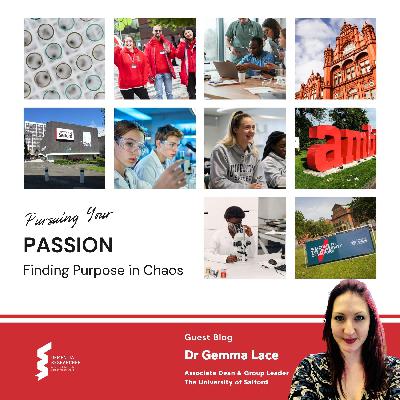


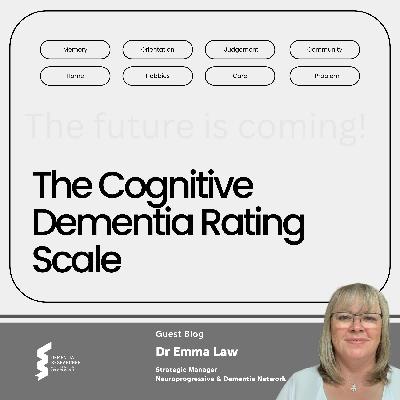
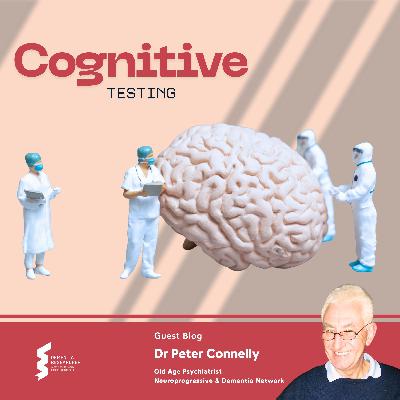
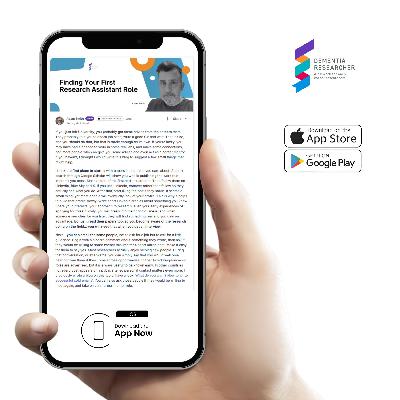
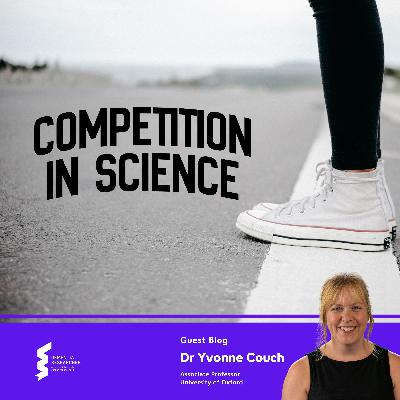
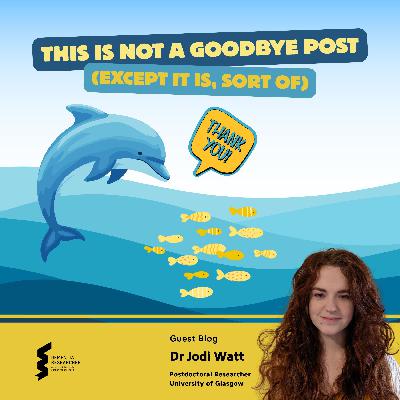
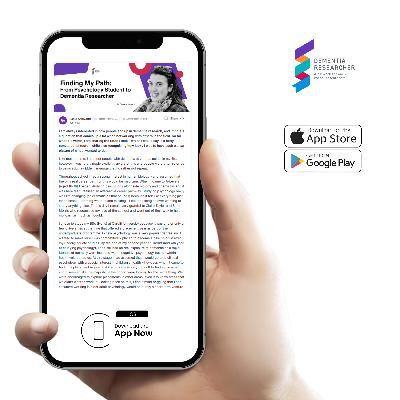
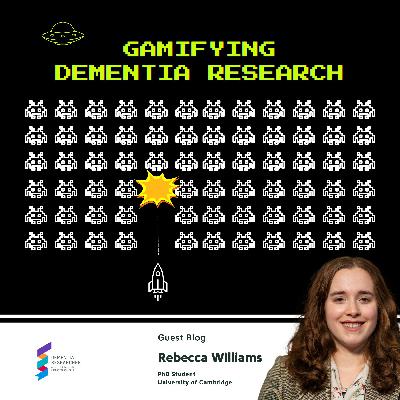
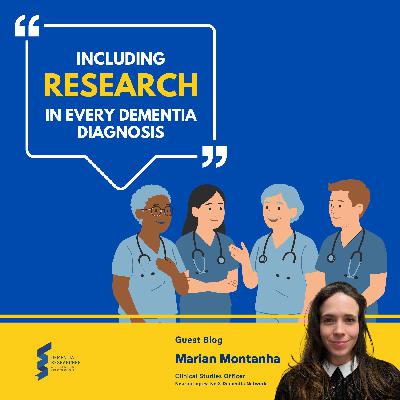

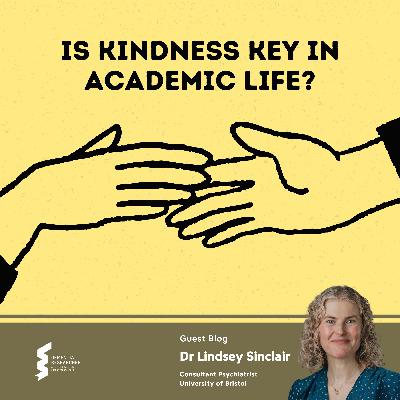
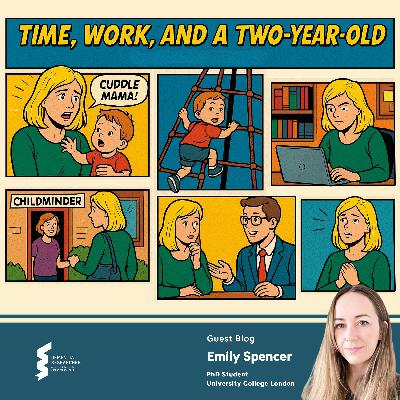


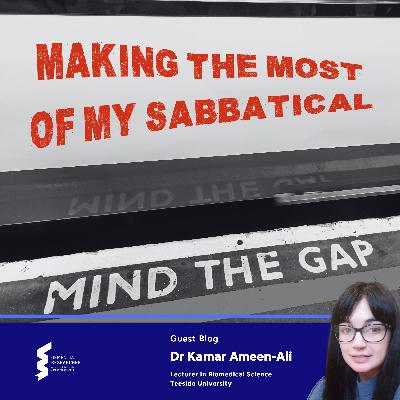

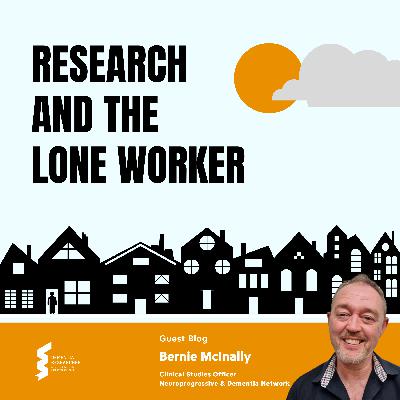
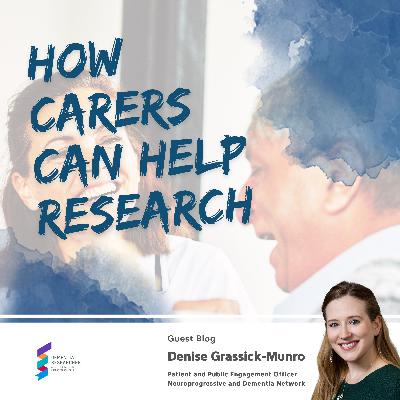



Thanks for these useful information related to the words. I am here to share about netwyman blogst. Visit us now and embark on a journey of knowledge and empowerment with Netwyman Blogs at https://trekinspire.com/netwyman-blogs/.